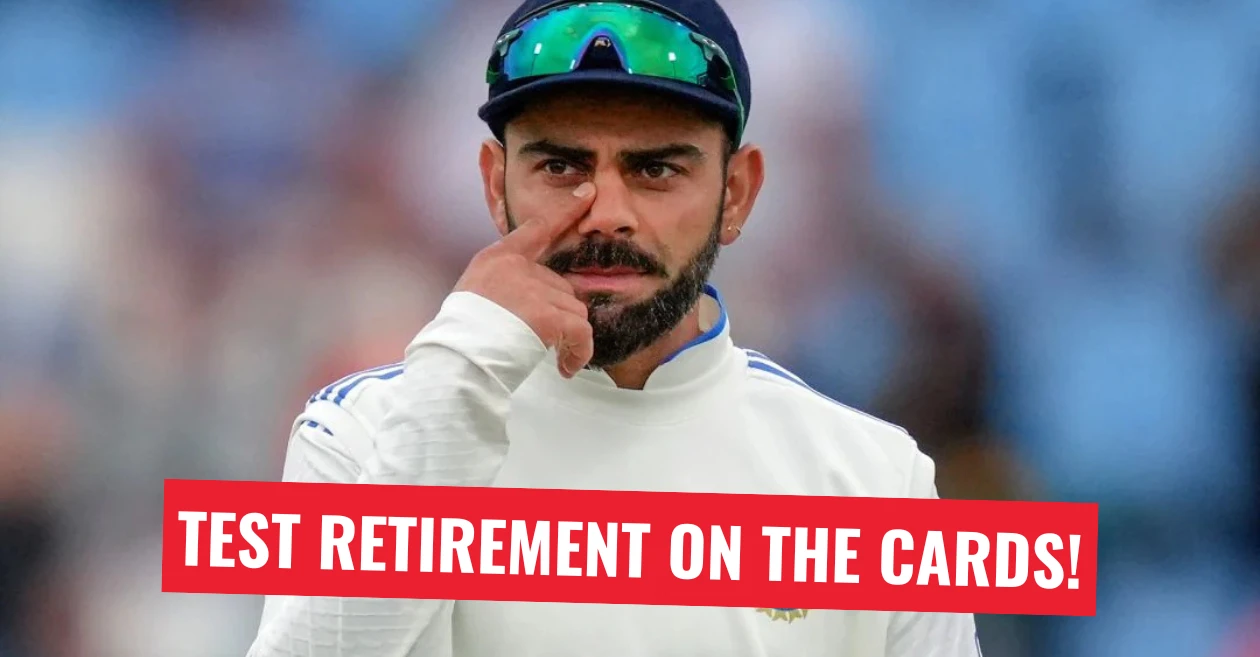
Indian cricket is on the brink of a seismic shift as Virat Kohli, one of the modern greats, has reportedly informed the BCCI of his intention to retire from Test cricket ahead of the England tour. This move, following Rohit Sharma’s exit from the format, signals the end of an era and has left fans and experts alike searching for answers.
Why Virat Kohli has decided to retire from Test cricket?
Here are the three key reasons driving Kohli’s potential decision:
1. Prolonged dip in form and mental fatigue
Kohli’s recent Test performances have not matched the lofty standards he set during his prime years. Since 2022, he has struggled to convert starts into big scores, with only three centuries in his last 37 Tests-a marked decline from his dominant 2016-2019 phase, where he amassed 4,208 runs at an average of 66.79 with 16 centuries in 43 matches. The mental strain of constant scrutiny and the pressure to deliver have taken a toll. Kohli himself admitted during a recent RCB event that the burden of expectations and the energy from outside criticism have made it increasingly difficult to perform, leading to desperation and self-doubt. This psychological fatigue, coupled with a demanding international schedule, appears to have accelerated his contemplation of retirement.
2. Desire for a graceful exit and reflection on legacy
Kohli’s sense of timing has always been impeccable, both on and off the field. According to reports, he has made up his mind and wants to move on from Test cricket”while still being regarded as one of the game’s greats. Kohli’s achievements – 9,230 runs in 123 Tests at an average of 46.85, 30 centuries, and a record 40 Test wins as captain – have cemented his legacy in Indian cricket. With the next ICC World Test Championship (WTC) cycle beginning and a new generation of batters emerging, Kohli may see this as the right moment to step aside, allowing the team to transition under fresh leadership while his contributions are still celebrated.
Also READ: Top 5 Indian Test captains with the highest winning percentage
3. The need for team renewal
Kohli’s leadership has been transformative for Indian Test cricket, but the responsibility has also been relentless. With Rohit Sharma’s recent retirement, the team is undergoing a generational shift, and the pressure on senior players to both perform and mentor is immense. Kohli has previously spoken about the importance of giving the next generation time and space to evolve-a philosophy that guided his T20I retirement after the 2024 World Cup. The current Test side, with talents like KL Rahul, Shubman Gill and Yashasvi Jaiswal, is entering a rebuilding phase. Kohli’s exit may be motivated by a desire to not impede this transition, believing that stepping away now will allow younger players to take on responsibility and grow into their roles.
Also READ: 3 ideal captaincy candidates for Team India after Rohit Sharma’s retirement from Test cricket




